Dragon Boat Festival, also known as Duanwu Festival, is a traditional Chinese holiday that falls on the fifth day of the fifth lunar month, and this year the festival was celebrated on Thursday.
Among the many versions of the festival's origin, the most widely accepted one dates back over 2,000 years to the legend of Qu Yuan, a well-known patriotic poet of the State of Chu during the Warring States period (475-221 BC).
The festival is now widely celebrated not only in China but also in other parts of the world to commemorate Qu, whose deep patriotism still touches people to this day. Celebrating the Duanwu festival also embodies Chinese people's love for their country.
Qu wrote many poems to express his love and concern for his country and people, and they have been cited by President Xi Jinping many times.
Xi, also general secretary of the Communist Party of China Central Committee and chairman of the Central Military Commission, has stressed the virtue of patriotism on multiple occasions.
"Patriotism feelings bring tears to our eyes, and patriotism spirit forms the backbone of the Chinese nation," Xi said.
"Love of our country, the feeling of devotion and sense of attachment to our motherland is a duty and responsibility of every Chinese. It is the foundation on which young Chinese in the new era can become winners in life. In contemporary China, the essence of patriotism is loving the country, the Party and socialism all at the same time," he said.
Xi's words have inspired the Chinese people to uphold the spirit of patriotism and dedicate themselves to the development of their country.
During the festival, various activities and events were held, with dragon boat races being an important tradition. The dragon boat races often involve groups of paddlers rowing dragon-headed and tailed long and narrow boats. It is believed that the boats embody the essence of the dragon, which is thought to bring good luck and prosperity. The rowing is accompanied by the rhythmic beating of drums and the shouts of the paddlers. The races embody the spirit of teamwork, strength, and perseverance, and are often followed by traditional music, dancing, and eating.
In addition to the boat races, the eating of zongzi, a traditional food made of glutinous rice wrapped in bamboo leaves and filled with various sweet or savory fillings, is another hallmark of the festival.
After the Qin conquered his Chu state, Qu threw himself into a river, displaying his unwavering patriotism. The Chu people were deeply touched by his sacrifice and threw zongzi into the water to honor him. They used boats to prevent fish from devouring Qu's body.
That gave rise to the customs of dragon boat racing and eating zongzi, which have been preserved to this day.

Villagers sew sachets, a traditional custom, to welcome the Dragon Boat Festival, in Handan, North China's Hebei Province, on June 19, 2023. Photo: IC
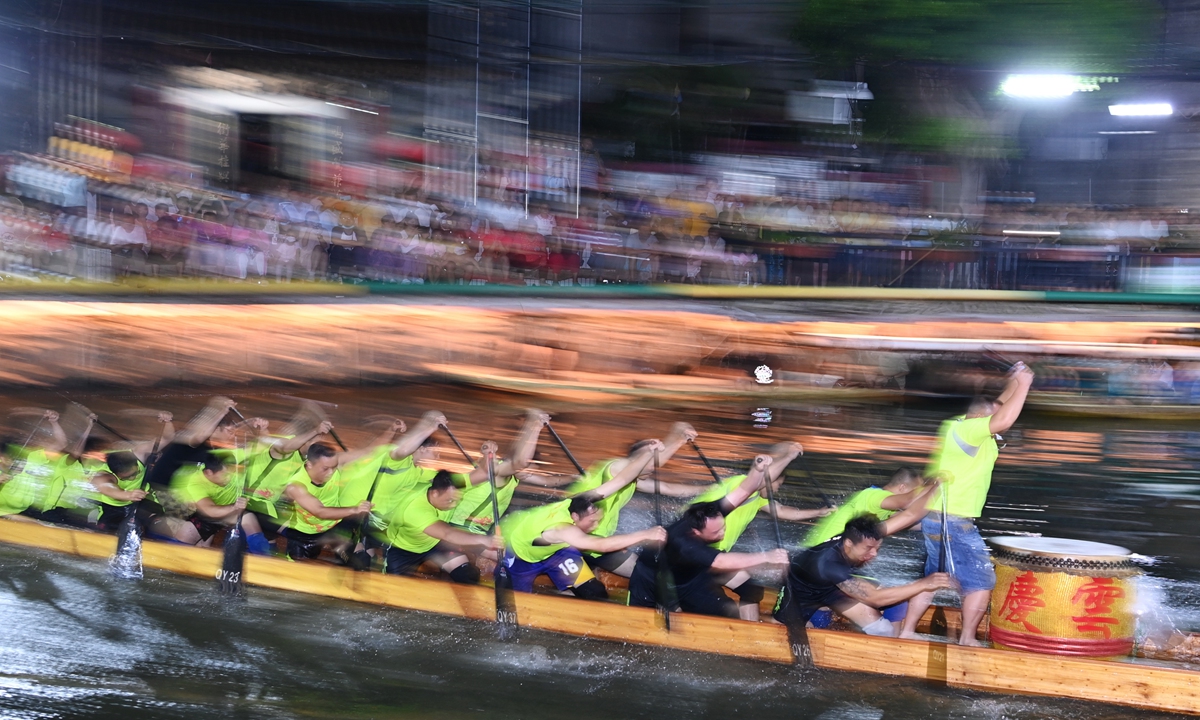
People conduct night training on a dragon boat in a narrow waterway in Foshan, South China's Guangdong Province, on June 16, 2023. Photo: IC
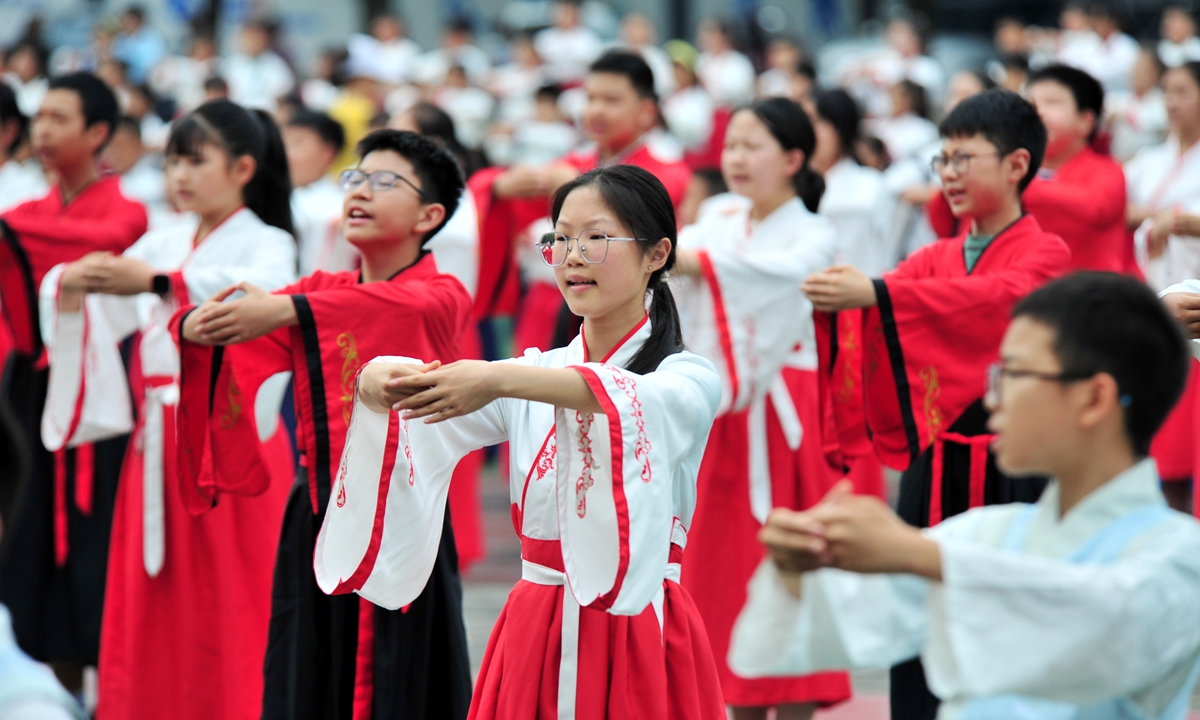
Teachers and students dressed in hanfu, the Chinese traditional clothing of the Han ethnic group, recite Qu Yuan's poem in Yichang, Hubei Province, on June 15, 2023. Photo:IC
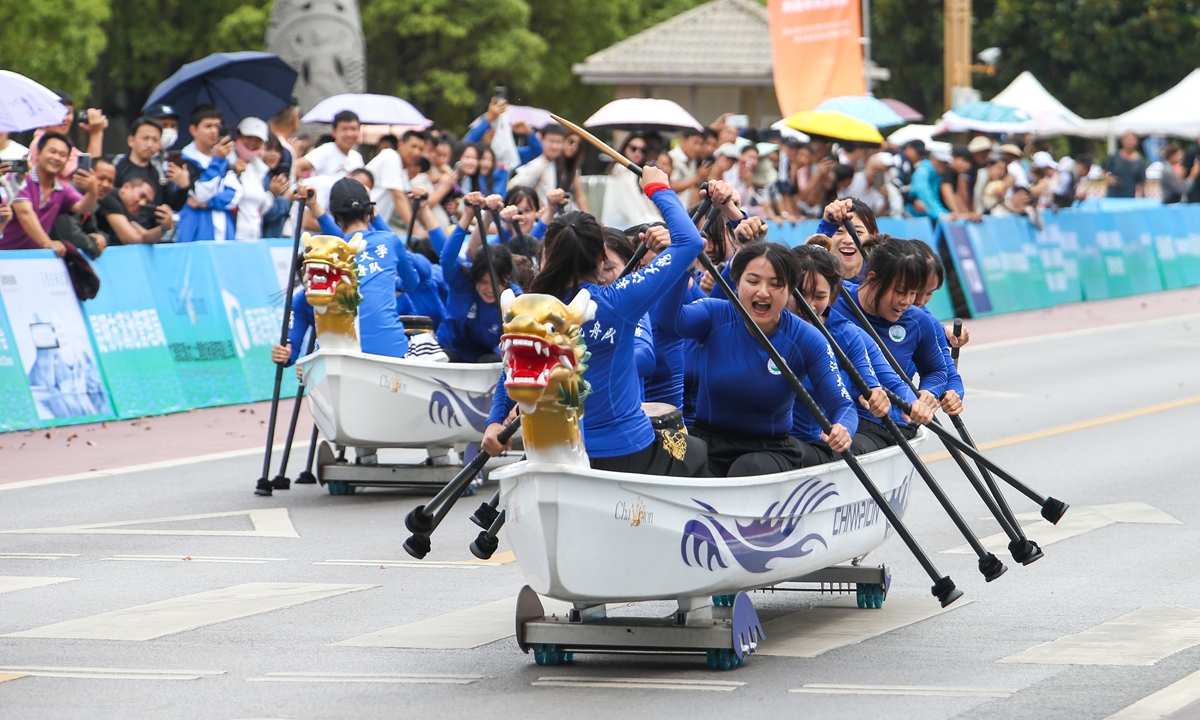
College students participate in a dragon boat competition which uses the land-based "roller dragon boat" in Kunming, Southwest China's Yunnan Province, on June 16, 2023. Photo: IC
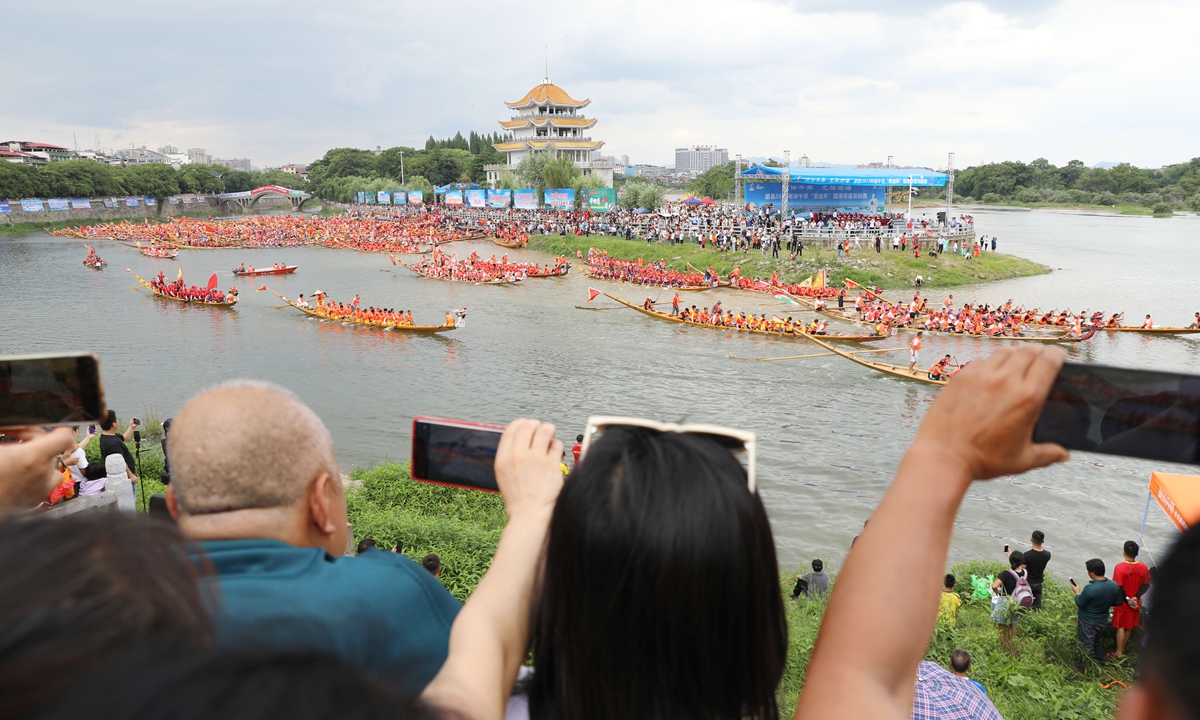
People watch a dragon boat race in Yongzhou, Central China's Hunan Province, on June 18, 2023. Photo: IC
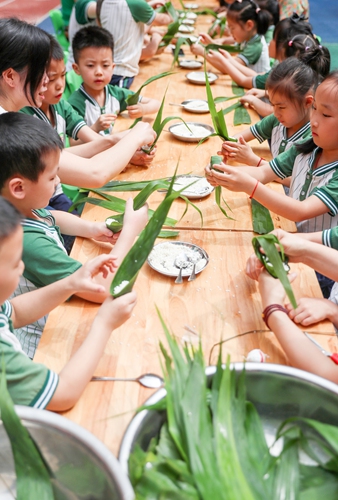
Teachers help children experience making zongzi in Huaying, Southwest China's Sichuan Province, on June 19, 2023. Photo: IC
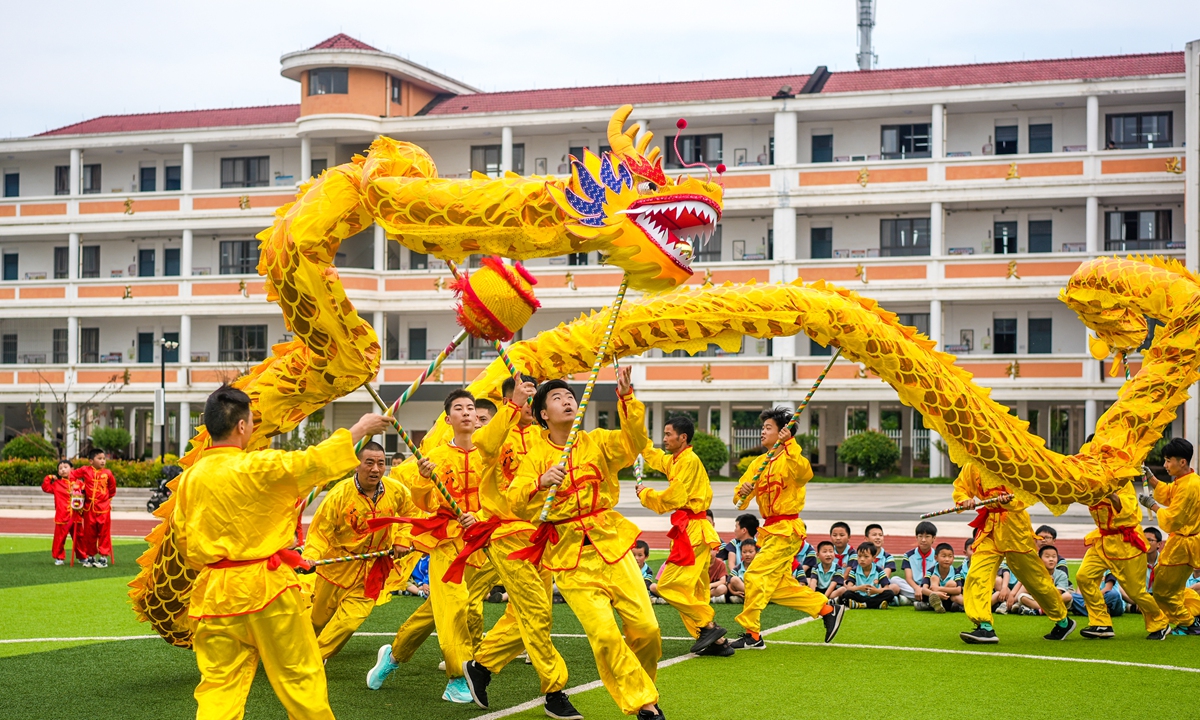
Students observe dragon dance performance in Changxing county, East China's Zhejiang Province, on June 19, 2023. Photo: IC










